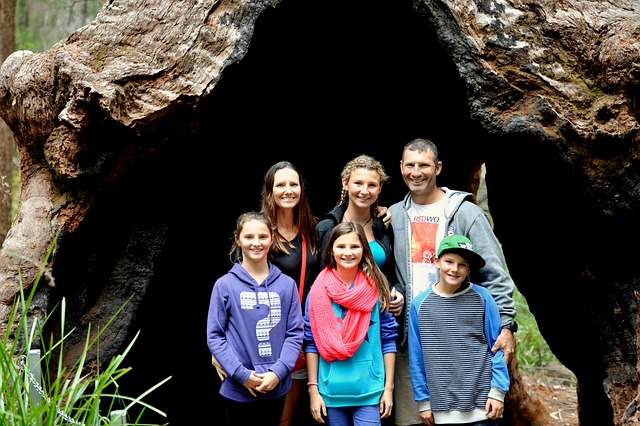Oregon's Child Protective Services (CPS) Law is a comprehensive framework designed to safeguard at-risk children, focusing on mandatory reporting, safety planning, and case management. Key aspects include dedicated advocates who represent children's rights, advocate groups driving reforms to streamline processes, and fostering open communication in foster care. Building community alliances is vital for sustainable impact, aiming to create a holistic environment that supports families while prioritizing the best interests of the child. The CPS Law plays a central role in Oregon's efforts to empower vulnerable youth and secure their future.
In Oregon, the child protective services law serves as a cornerstone for safeguarding vulnerable youth within the welfare system. This article delves into the multifaceted role of advocates in supporting these children, exploring the intricacies of Oregon’s legal framework and its implications. We examine challenges faced in the welfare system and propose strategies to empower foster care youth with voice and choice. Additionally, we emphasize the importance of community alliances in fostering sustainable, positive change for children in need.
- Understanding Oregon's Child Protective Services Law: A Framework for Protection
- The Role of Advocates in Supporting Vulnerable Children
- Navigating the Welfare System: Challenges and Opportunities for Change
- Effective Strategies to Strengthen Voice and Choice for Foster Care Youth
- Building Community Alliances: Fostering Collaboration for Sustainable Impact
Understanding Oregon's Child Protective Services Law: A Framework for Protection

Oregon’s Child Protective Services (CPS) Law is a comprehensive framework designed to protect and nurture at-risk children within the state’s welfare system. This law outlines the responsibilities of CPS, which include investigating reports of child abuse or neglect, providing services to families, and ensuring the safety and well-being of children. The primary objective is to keep families together while promoting the best interests of the child.
The CPS Law in Oregon emphasizes a holistic approach, focusing on prevention, intervention, and long-term support. It involves various provisions such as mandatory reporting requirements for professionals who come into contact with vulnerable children, safety planning, and case management services. By implementing these measures, Oregon strives to create a supportive environment, offering resources and guidance to families while ensuring the child’s rights and needs are met within the legal framework.
The Role of Advocates in Supporting Vulnerable Children

Children involved in the welfare system often face complex challenges and vulnerabilities, making advocates an essential pillar of support. These advocates play a crucial role in ensuring that the rights and best interests of children are protected within the child protective services law framework. They act as voices for these vulnerable youth, navigating the intricate systems and legal procedures to secure their safety and well-being.
Advocates provide a range of services, from representation in court proceedings to helping children develop essential life skills. They empower kids to understand their rights, fostering agency and self-advocacy. By offering guidance and emotional support, advocates enable children to navigate the often confusing and daunting aspects of the welfare system, promoting positive outcomes and a brighter future.
Navigating the Welfare System: Challenges and Opportunities for Change

Navigating the welfare system in Oregon presents unique challenges, particularly for children involved with Child Protective Services (CPS). The complex web of laws and regulations can be daunting, often leading to delays in cases and potential setbacks for vulnerable youth. The CPS law, which governs every aspect from investigation to placement, must be rigorously understood and adhered to ensure fairness and prompt resolution.
Despite these challenges, there are opportunities for change. Advocacy groups and dedicated professionals are working tirelessly to streamline processes, enhance support systems, and promote innovative solutions. By advocating for systemic reforms, we can create a more responsive and effective welfare system that prioritizes the best interests of children while ensuring their rights are protected under the CPS law.
Effective Strategies to Strengthen Voice and Choice for Foster Care Youth

Empowering foster care youth and giving them a strong voice is essential for their holistic development and well-being, especially within Oregon’s welfare system. By implementing effective strategies, child protective services law can be upheld while also fostering agency and decision-making skills in young people. One key approach is to encourage and facilitate open communication between caregivers, youth, and caseworkers. This includes creating safe spaces for expression, actively listening, and ensuring every voice is heard without fear of judgment or repercussions.
Additionally, providing choices and opportunities for self-determination can significantly enhance a foster care youth’s sense of control and resilience. This could involve offering age-appropriate decision-making tasks, involving them in planning their care and placements, and supporting their interests and aspirations. Such strategies not only strengthen their connection to the system but also prepare them for successful transitions into adulthood.
Building Community Alliances: Fostering Collaboration for Sustainable Impact

Building strong community alliances is vital for advocating children in Oregon’s welfare system, where collaboration ensures a sustainable and holistic impact. By fostering partnerships between various stakeholders—including child protective services law professionals, non-profit organizations, schools, and local businesses—we create a network that supports the comprehensive needs of these vulnerable youth.
These alliances play a pivotal role in breaking down silos and promoting coordinated efforts. Together, we can better address the complex challenges faced by children in care, providing them with consistent advocacy, improved access to resources, and enhanced opportunities for success. Through collaborative initiatives, Oregon can strive towards a more responsive and effective system that empowers children and paves the way for brighter futures.






